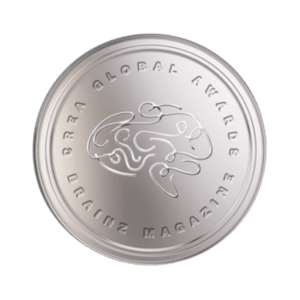Depression
Feeling sometimes sad, down or lacking in motivation is normal and part of being human, particularly after a disappointing experience, a loss or at the end of a significant relationship.
We often use the term depression to describe a range of feelings such as frustration, low mood, sadness, disappointment and in some cases even tiredness. However, the term depression in clinical terms refers to a long-lasting, intense sense of low mood, often characterised by feelings of hopelessness, as well as a very critical and negative self-image.
Understanding depression
This state feels extremely debilitating and interferes significantly with the individual’s day to day functioning. In fact, individuals who suffer from depression find very difficult to cope with everyday life feeling overwhelmed most of the time, struggling with carrying out even simple tasks such as buying groceries and going to work. Depression makes everything seem meaningless. In most severe cases, it can even make you feel that life is not worth living.
It is important to remember that although depression might lead you to feel hopeless, feeling that things will never change or improve, it is not necessary true and there are a number of strategies and coping skills that can help you feel better.
What are the main symptoms of depression?
Depression can be described having both psychological and physical symptoms.
Most common psychological symptoms:
Feeling tearful
Feeling hopeless
Lack of motivation in doing anything
No enjoyment or interest in hobbies and enjoyable activities
Feeling irritable
Feeling angry
Feeling suicidal
Thoughts of hurting yourself
Thoughts of hurting others
Isolation – not wanting to socialise or talk to people
Most common physical symptoms:
Changes in sleeping patterns - difficulties in falling asleep, stay asleep or sleeping more
Changes in appetite – having very little or no appetite, or eating too much
Decrease or lack of sexual interest
Having low energy – feeling unmotivated or lethargic
What causes depression?
Depression is suggested to be caused by a combination of factors, both biological and psychological. These factors interact with one another in a very unique way for each person, leading to the development of depression.
Biological factors
There is research evidence that suggests that genes, hormones and brain chemicals might have an effect on the development of this condition.
Genetic factors:
Depression often seem to run in the family. This would appear to suggest the existence of a genetic component that make us more vulnerable to developing depression. However, inherit a genetic vulnerability does not mean that we will suffer from depression. Moreover, the link between depression and family members’ history of depression could also be explained by the fact that growing up we learn specific behaviours and ways of thinking from our primary caregivers and other important people in our life and that we might develop a vulnerability to this condition not necessarily due to our biology. More research is needed to clarify the existence of a possible genetic component.
Hormonal factors:
Research suggests that there are some hormonal changes – an under or over production of certain hormones – that occur in depression which might account for some of the symptoms characteristic of depression. More research is needed to clarify the impact of hormonal problems and the development of depression.
Brain Chemicals:
Research suggests that during depression the activity of some neurotransmitters systems is reduced and this decrease in activity may result in less communication among nerves cells in particular areas of the brain that regulate functions such as mood, appetite sleep and sexual desire, which would account for the most classic symptoms of depression. This is often referred to as having a ‘chemical imbalance’. Some people believe that psychotropic medication can ‘correct’ this imbalance in the brain. However, the research evidence for this is extremely weak and if alterations to brain chemistry occur, it is not clear whether these are the cause of depression or the result of it.
2. Psychological factors
Thinking patterns:
There are some thinking pattern are particularly associated to depression. These includes: only seeing the negative, having very rigid rules about what you ‘should’ do or how you ‘should’ behave, taking responsibility for what goes wrong in your life, but not for what it goes well, and thinking that you know what other people think of you, and its negative.
Childhood experiences:
Research evidence suggests that going through challenging circumstances growing up such as emotional, physical or sexual abuse, neglect, loss of a primary caregiver, traumatic events and instability, can lead to the development of depression as these difficult events may have a significant impact on the individual self-esteem and on their ability to learn to cope with difficult circumstances. This may increase the individual vulnerability to developing depression, if less able to cope with challenging life events and hardships.
Life events:
Research suggests that life events such as unemployment or losing a job, bereavement, loss of a relationship or friendships, being sexually or physically assaulted, being abused, going through a separation or divorce, stress, economic difficulties or physical illness can have a huge impact on the development of depression.
However, it is important to keep in mind that it’s not that experiencing hardship or challenging experiences will inevitably lead to developing depression. In fact, a very big part is played by how we deal with these difficult events. If we don’t have enough support around when dealing with such events and the difficult emotions that are triggered as a result of experiencing these challenges, it is possible that the low mood may escalate into depression.
Therapy for depression
Every person is unique and not one treatment works for everyone. It is important for the treatment to be tailored to the specific situation and needs of the individual. There are different therapies that have proven to be effective in the treatment of depression such as
There are also things that you can do by yourself. One of the most difficult thing in dealing with depression is to start make small, but consistent changes to our lifestyle, and/or day to day routine. You will be surprise by the difference that small changes - even though might feel huge ones- can make in how you feel.
It is important to take a ‘small steps approach’. Depression may make you feel getting active or reach out for help extremely daunting, it may even feel impossible. Therefore, focusing on small steps may help you to perceive this as more achievable, as well as increasing your sense of personal achievement. This is extremely important to help you to recognise and acknowledge your achievements – regardless if big or small - and start building back some trust in your own abilities.
It is important to remember that the nature of depression is characterised by a significant lack in motivation, low energy, isolation, negative thinking and deep sense of sadness. This can start a vicious cycle where the less you do the worst you feel, and the worst you feel the less you want to do. Therefore, it is important to use the small steps approach also to introduce some activities – no matter how small – that you find enjoyable or rewarding every single day to help you improve your mood and increase your sense of motivation to do something.
Finally, trying to get more physically active on your everyday life may contribute to promote a sense of wellbeing due to the release of endorphins. This could take the form of different activities depending on what you like, such as join an exercise class, yoga, going for walks or cycle. It might feel an extremely hard step to take, but one that can contribute to help you feel better in the sort and long term.
To know more about depression and its treatment or to book an appointment please contact me.








